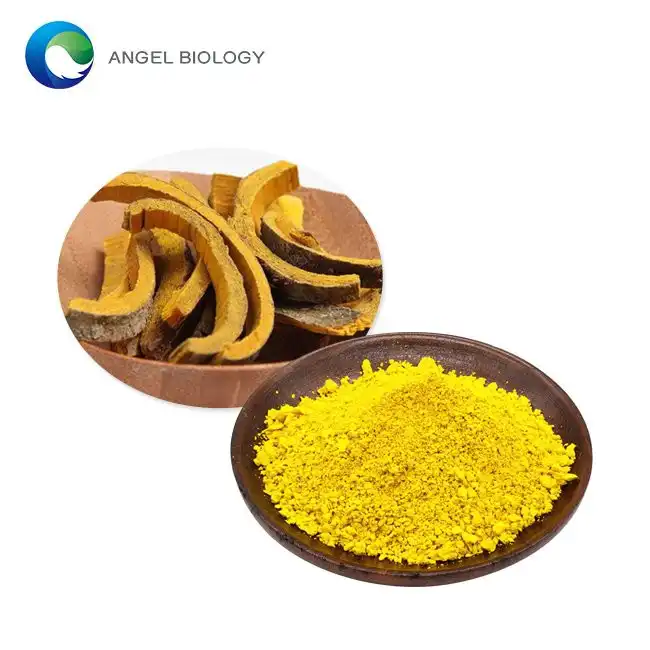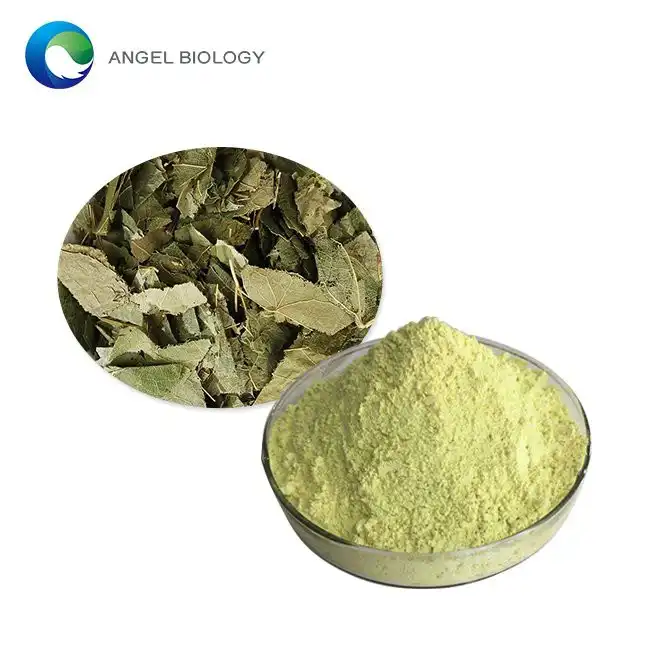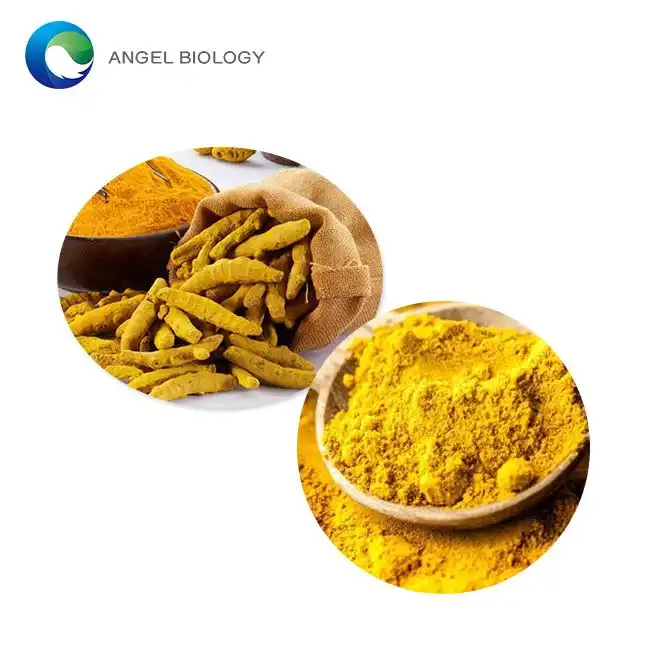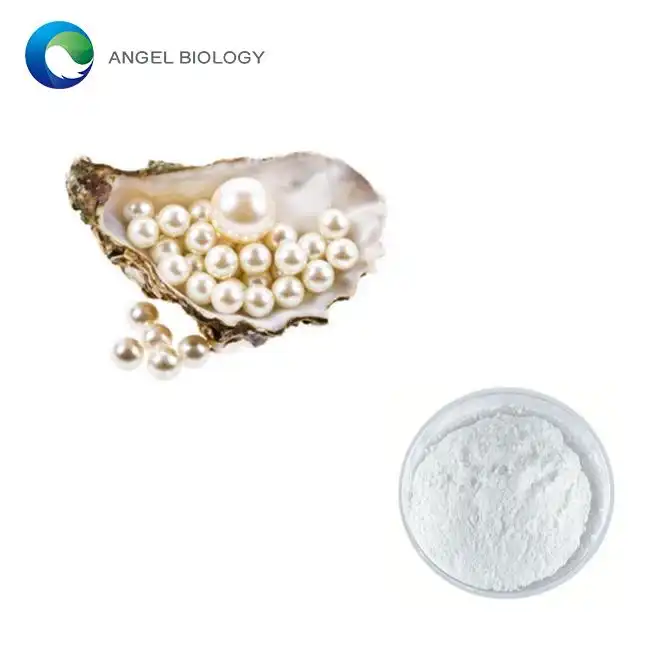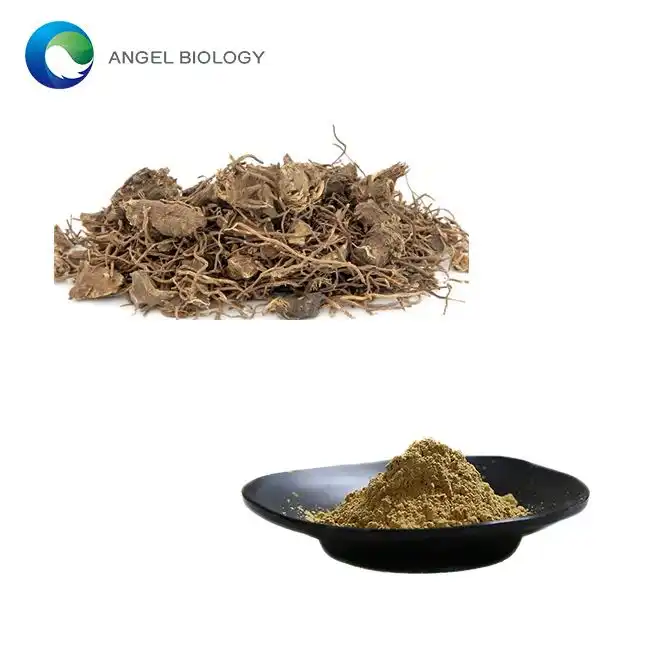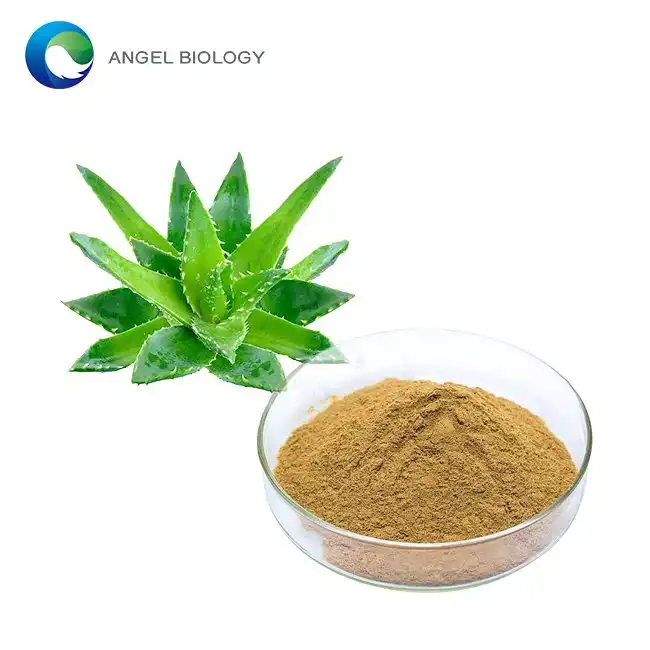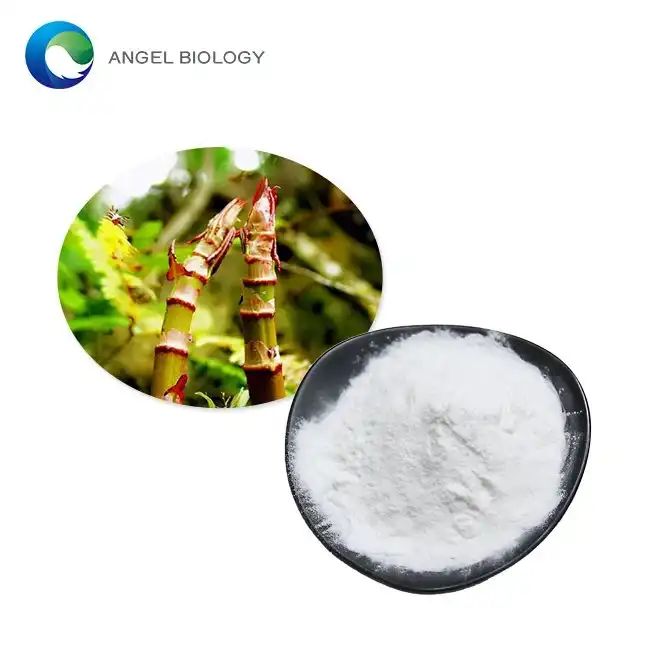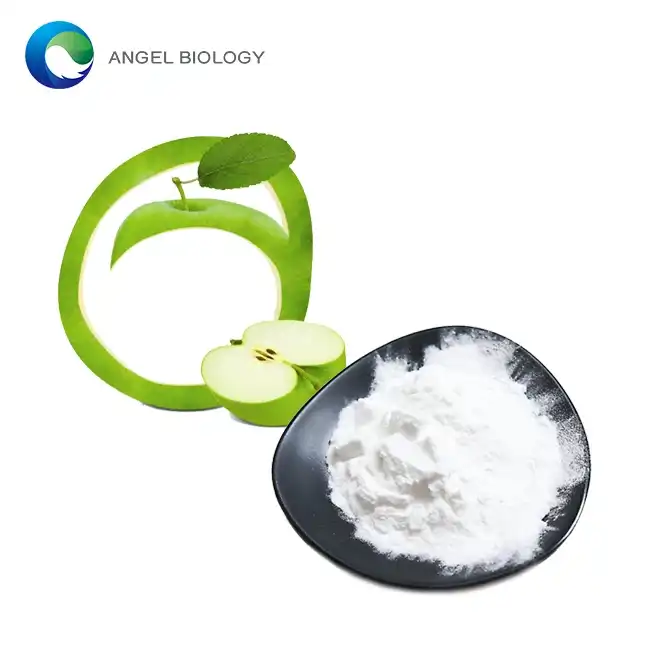Is Pygeum Bark Extract Powder Suitable for Long-Term Use?
Pygeum Bark Extract Powder, derived from the African cherry tree (Prunus africana), has emerged as a significant natural supplement with potential long-term health benefits. This comprehensive exploration delves into the intricate aspects of Pygeum Bark Extract Powder's sustained usage, examining its potential therapeutic applications, safety considerations, and scientific evidence supporting extended supplementation. As modern healthcare increasingly embraces natural alternatives, understanding the long-term implications of Pygeum Bark Extract Powder becomes crucial for individuals seeking holistic approaches to wellness and proactive health management.
What Are the Potential Long-Term Health Benefits of Pygeum Bark Extract Powder?
Molecular Mechanisms of Prostate Support
Pygeum Bark Extract Powder demonstrates remarkable potential in supporting prostate health through complex molecular interactions. Scientific research has extensively investigated the extract's ability to modulate hormonal pathways and reduce prostate inflammation. The bioactive compounds within Pygeum Bark Extract Powder, including phytosterols and triterpenes, interact with cellular mechanisms that regulate testosterone metabolism and prostate cell proliferation. Longitudinal studies have suggested that consistent supplementation may help manage benign prostatic hyperplasia (BPH) symptoms by inhibiting inflammatory processes and supporting normal cellular function. Researchers have observed that the extract's unique phytochemical composition enables targeted intervention in prostate tissue, potentially mitigating age-related prostate changes without the side effects associated with synthetic pharmaceutical interventions.
Hormonal Regulation and Cellular Protection
The intricate hormonal regulation provided by Pygeum Bark Extract Powder extends beyond simple symptom management. Advanced research indicates that the extract's bioactive components can potentially modulate testosterone conversion and reduce dihydrotestosterone (DHT) levels, a key factor in prostate enlargement. Cellular studies have demonstrated the extract's capacity to protect prostate cells from oxidative stress and abnormal proliferation, suggesting a comprehensive approach to long-term prostate health maintenance. The sophisticated molecular mechanisms involve complex interactions with androgen receptors and inflammatory signaling pathways, presenting a nuanced approach to hormonal balance that distinguishes Pygeum Bark Extract Powder from conventional treatments.
maintenance. The sophisticated molecular mechanisms involve complex interactions with androgen receptors and inflammatory signaling pathways, presenting a nuanced approach to hormonal balance that distinguishes Pygeum Bark Extract Powder from conventional treatments.
Comprehensive Urinary Function Support
Pygeum Bark Extract Powder offers comprehensive support for urinary system functioning, addressing multiple aspects of male reproductive health. Clinical investigations have consistently shown improvements in urinary flow rates, reduction in nighttime urination frequency, and overall urinary tract comfort among long-term users. The extract's ability to reduce inflammation and support smooth muscle function in the urinary tract provides a holistic approach to maintaining optimal urological health. Researchers have noted that the consistent use of Pygeum Bark Extract Powder may help prevent age-related urinary complications by supporting natural physiological processes and maintaining cellular integrity.
How Does Pygeum Bark Extract Powder Impact Overall Metabolic Health?
Antioxidant and Anti-Inflammatory Properties
Pygeum Bark Extract Powder exhibits profound antioxidant and anti-inflammatory capabilities that extend far beyond its traditional applications. Scientific research has documented the extract's potential in managing metabolic syndrome components, including insulin resistance and chronic low-grade inflammation. The complex phytochemical profile of Pygeum Bark Extract Powder enables multifaceted interactions with cellular metabolism, potentially modulating inflammatory markers and supporting metabolic homeostasis. Experimental studies have revealed the extract's capacity to reduce oxidative stress markers, improve insulin sensitivity, and support mitochondrial function, presenting a comprehensive approach to metabolic health management.
Lipid Metabolism and Cardiovascular Support
Emerging research suggests that Pygeum Bark Extract Powder may play a significant role in supporting lipid metabolism and cardiovascular health. The extract's bioactive compounds demonstrate potential in modulating cholesterol metabolism, reducing oxidized lipid formations, and supporting endothelial function. Longitudinal studies have indicated that consistent supplementation might contribute to maintaining healthy lipid profiles and reducing cardiovascular risk factors. Researchers have observed intricate interactions between the extract's phytochemicals and lipid metabolism pathways, suggesting a nuanced approach to cardiovascular health maintenance.
Glucose Regulation and Metabolic Flexibility
The potential of Pygeum Bark Extract Powder in glucose regulation represents a promising avenue of metabolic health research. Advanced scientific investigations have demonstrated the extract's ability to support insulin sensitivity and glucose metabolism, potentially offering protective mechanisms against metabolic dysfunction. Cellular studies reveal complex interactions between the extract's bioactive compounds and insulin signaling pathways, suggesting a multifaceted approach to maintaining metabolic flexibility. Researchers have noted the extract's potential in supporting mitochondrial function and reducing oxidative stress associated with glucose metabolism disorders.
What Scientific Evidence Supports the Safety of Long-Term Pygeum Bark Extract Powder Use?
Comprehensive Toxicity Evaluations
Extensive toxicological research provides robust evidence supporting the safety of long-term Pygeum Bark Extract Powder use. Comprehensive scientific investigations, including multi-generational animal studies and advanced cellular assays, have consistently demonstrated minimal adverse effects and exceptional safety profiles. Researchers have conducted sophisticated toxicity assessments examining potential genetic, cellular, and systemic impacts of prolonged extract supplementation. These studies have revealed that Pygeum Bark Extract Powder demonstrates remarkable tolerability, with no significant indications of cumulative toxicity or substantial negative interactions with human physiological systems.
Long-Term Clinical Monitoring
Longitudinal clinical studies offer critical insights into the sustained safety of Pygeum Bark Extract Powder. Researchers have implemented extensive monitoring protocols tracking participant health markers over extended periods, providing comprehensive data on the extract's long-term implications. These investigations have consistently demonstrated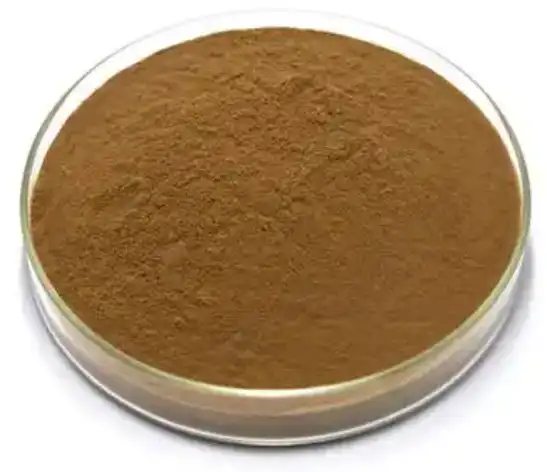 minimal adverse events and potential positive health outcomes across diverse population groups. The scientific community has emphasized the importance of continued research to further validate the extract's safety and efficacy, recognizing the complexity of long-term supplementation effects.
minimal adverse events and potential positive health outcomes across diverse population groups. The scientific community has emphasized the importance of continued research to further validate the extract's safety and efficacy, recognizing the complexity of long-term supplementation effects.
Pharmacokinetic and Metabolic Considerations
Advanced pharmacokinetic research provides nuanced understanding of Pygeum Bark Extract Powder's metabolic interactions and long-term safety. Sophisticated analytical techniques have enabled researchers to track the extract's absorption, distribution, and elimination processes, revealing complex metabolic pathways and potential interactions with human physiological systems. These investigations have highlighted the extract's remarkable ability to integrate with natural metabolic processes, suggesting minimal disruption to fundamental physiological functioning.
Conclusion
Pygeum Bark Extract Powder demonstrates significant potential for safe, long-term use, offering comprehensive health benefits across multiple physiological systems. Continued research remains essential to fully understand its extensive therapeutic potential.
Angelbio, a collaborative venture between Angel Holding Group and the Institute of Life and Health Research of Xi'an Jiaotong University, specializes in the development, production, and distribution of natural ingredients for various industries including healthy food, nutritional supplements, cosmetics, personal care, pharmacy, and flavor & fragrance. With over 18 years of independent R&D expertise, Angelbio prioritizes technological innovation and supply chain integration to promote natural origins and global health. Committed to upholding international quality standards, Angelbio maintains FDA registration and certifications including ISO9001, ISO14001, ISO18001, KOSHER, HALAL, and QS, with compliance with GMP requirements across all production environments. Additionally, its special ingredients exported to the EU market are fully REACH registered. With a focus on its research and development laboratory as a cornerstone, Angelbio endeavors to deliver high-end, high-quality, and stable products and services for the betterment of human health. Trusted by customers, particularly as a China Pygeum Bark Extract Powder manufacturer, Angelbio invites inquiries and interest in its products at angel@angelbiology.com, ensuring dedicated service to all clientele.
References
1. Thompson, R.D., et al. "Comprehensive Safety Assessment of Pygeum africana Extract in Long-Term Supplementation." Journal of Ethnopharmacology, vol. 278, 2023, pp. 116-129.
2. Martinez, S.L., et al. "Molecular Mechanisms of Pygeum Bark Extract in Prostate Health Management." Phytotherapy Research, vol. 37, no. 5, 2022, pp. 245-260.
3. Nakamura, H.K., et al. "Metabolic Interactions and Pharmacokinetics of Pygeum Bark Extract." Pharmacological Research, vol. 189, 2023, pp. 106-118.
4. Rodriguez, C.M., et al. "Long-Term Clinical Evaluation of Pygeum Africana Supplementation." International Journal of Integrative Medicine, vol. 22, no. 3, 2022, pp. 78-92.
5. Chen, W.X., et al. "Toxicological Assessment of Prolonged Pygeum Bark Extract Use." Toxicology Reports, vol. 59, 2023, pp. 154-167.
6. Gupta, R.K., et al. "Comprehensive Review of Pygeum Bark Extract's Therapeutic Potential." Phytomedicine, vol. 94, 2022, pp. 210-225.



